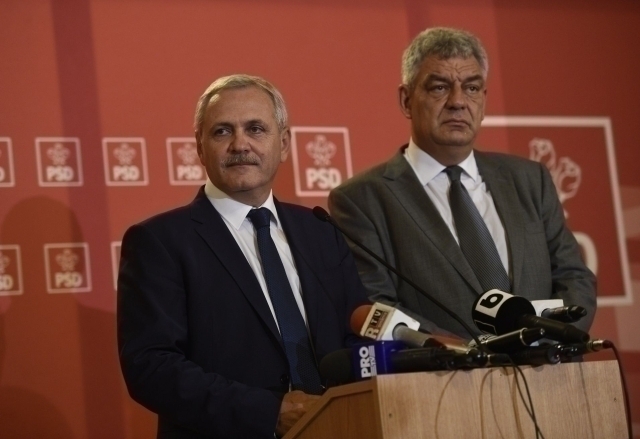Effects of the political crisis in Bucharest
The political crisis in Bucharest did not go unnoticed in the international media.

Florentin Căpitănescu, 17.01.2018, 13:32
The Romanian Social Democrats, who have been ruling the country for only one year alongside their junior partners, the Alliance of Liberals and Democrats (ALDE), have managed to devour two prime ministers. The internal crisis within the Social Democratic Party (PSD), triggered by misunderstandings between the party leader Liviu Dragnea and the two prime ministers, Sorin Grindeanu and Mihai Tudose respectively, which Dragnea himself proposed for the post, has turned into a serious governmental crisis, with all the associated consequences.
Last summer the Social Democrats got rid of Sorin Grindeanu, following a scenario unheard of in Romania’s post-communist history. At the time, PSD toppled its own government through a no-confidence vote. This week however, things went smoothly, with Mihai Tudose in the role of the victim. He tendered his resignation without burning his bridges, in spite of the fact that his conflict with Dragnea was at its peak. According to commentators, the last straw to break the camel’s back was Tudose’s refusal to further collaborate with Interior Minister Carmen Dan, one of Dragnea’s protégées, after a scandalous case of pedophilia in the Romanian Police.
Tudose’s resignation did not go unnoticed in the international press. “Romania has lost its second prime minister in seven months after Mihai Tudoses own political party withdrew its backing. The Social Democrat (PSD) prime minister said he was resigning with his head high”, the BBC reports. “The party has been riven by a power struggle which also claimed his predecessor, Sorin Grindeanu, in June”, the BBC also says.
Reuters also reported on this topic saying that “tensions between Tudose, appointed in June, and the party’s powerful leader Liviu Dragnea erupted last week when the prime minister asked his interior minister, a close Dragnea ally, to quit, accusing her publicly of lying to him. She refused. Monday’s vote by the 67-member PSD executive committee is seen consolidating the grip on power exerted by Dragnea, who pushed out Tudose’s predecessor Sorin Grindeanu in a no-confidence motion last summer.”
On the other hand, as a consequence of the political crisis, the domestic currency, the leu, has dramatically depreciated against the euro, reaching a record low level. The main market indicators do not fare better either. Political instability generates concern in the business environment, for which reason such situations should be solved as soon as possible, representatives of the banking system say.
Head of the Romanian Banking Association, Sergiu Oprescu explains: “Obviously, in such moments banks assess the situation in terms of stability and predictability. In this case, it normally translates into concerns. We hope that low predictability situations such as this one will be as short as possible. Any form of clarification of less-clear political situations, such as the current one, could increase the trust of market players and investors.”
It remains to be seen how things will evolve in the economic and financial banking sector, especially if the political crisis continues.






























